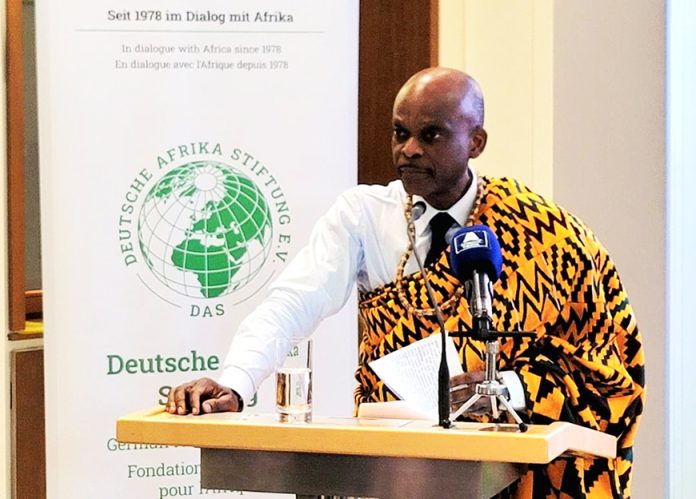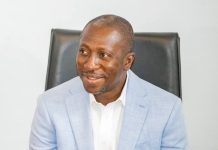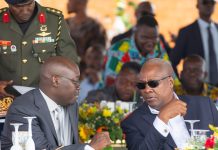True repentance on the part of the West, who divided and plundered Africa, must go beyond symbolic gestures, by not only providing assistance to the continent, but must seriously finance its revival, help it restore its unity, and support its sustainable development, Togolese minister of Foreign Affairs, Robert Dussey has said.
Delivering a lecture on the Berlin Conference of 1884 and 1885, which led to the partitioning of Africa by Western powers, organised by the German Africa Foundation in Berlin, Dussey said, though Africa was battered and left bruised due to colonization with its consequence being imperialism, the continent does not want to dwell on its past problems, because it is not in the nature of the African to remain resentful of the crime committed against it.
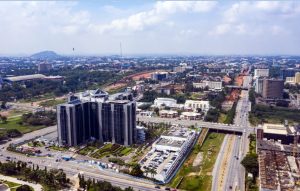
“Our goal is not to dwell on the horrors of colonization and imperialism, though these crimes should rightfully be classified today as crimes against humanity and genocide,” he said, adding that, Africa’s “primary goal is to shed light on a history that has long been ignored in narratives and education – a history that centres on the victims, the scars that we, their descendants, still carry.”
Dussey said“It is not in our culture to nurture resentment or revenge. But reason demands that we remember the suffering endured, and above all, that we demand reparations for the harm and injustices committed. My generation firmly believes that some have not learned enough from the past and that some still entertain the idea of repeating history.”
He said Africa, with a land area of 30,370,000 km², is larger than Europe, China, and the United States combined, and has 60% of the world’s arable land, 90% of raw material reserves, and 40% of global gold reserves.
Dusseysaid inaddition, “Africa holds 33% of the world’s diamond reserves, 80% of the global coltan reserves, a critical metal for electronics, especially in the Democratic Republic of Congo and 60% of global cobalt reserves, which is essential for electric vehicle batteries. Africa is rich in oil, natural gas, manganese, iron, timber, and many other resources.”
He said the agricultural land in the Democratic Republic of Congo alone has the potential to feed all of Africa, adding that, Africa’s youth population is expected to reach 2.5 billion by 2050, making the continent the future of humanity
Dussey said before slavery in Africa, the lives of Africans were quite similar to those of the Europeans who later enslaved the continent, saying, “some lived in large cities, others in small towns, and some in rural areas. Some were wealthy, others were poor.”While it remained an unexplored territory by the 5th century, the continent has often been perceived as dark, though it had established external contacts.
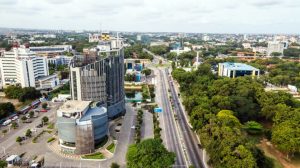
Reminding the world of how Africa was treated, he said “in Berlin, Africa was both present and absent. It was present as a prize to be divided, with conditions set for its partition, yet absent from the decision-making process. Africa was at the heart of the conference without being a participant.”
“The present and future of Africa were decided in Europe, here in Germany, without Africa and in Africa’s absence.The lack of African delegations at the Berlin Conference meant that African interests and perspectives were completely disregarded,” Dussey said, adding that, “the Berlin Conference was intended to regulate colonization and trade in Africa to prevent conflicts among European powers, and to establish rules among Europeans for the recognition of territorial claims. The aftermath is well known. Africa was systematically invaded, despite the heroic resistance of its people.”
He said what happened in Berlin between November 15, 1884, and February 26, 1885, would not have been as shocking and humanly unacceptable if it had not involved the fate of an entire continent and over 100 million people at the time, whose immediate, near, and future destinies were at stake, adding that, “Berlin served as the stage for a disastrous plan—the European imperial and colonial project.”
He said after the Berlin conference, “European imperialism brutally imposed itself on Africa, committing mass crimes and atrocities. This brutality was manifested through the rape of African women, Police violence, massacres and deportation of resistance fighters, crimes against humanity and acts of genocide.
Dussey said what Africaseeks is “a sincere discussion about the Berlin Conference, an honest examination of colonial history, and the achievement of a shared understanding and collective memory even when the truth is difficult to accept. Only by doing so can we deepen the Africa-Europe partnership and shape a common future.”
“Europe was not only brutal toward Africa; it combined brutality with deception. It destabilized the continent while claiming to bring civilization, economic prosperity, and trade in a world it portrayed as progressing toward modernity. It sought to justify its crimes by assigning itself a so-called civilizing mission,” he said.
Dusseysaid Africans have every reason to resent Europe, because one does not treat their neighbours with such cruelty as they did to the continent following the Berlin Conference, adding that, the colonial past is one that refuses to pass, because “Africa still holds a vivid memory of it. African peoples are welcoming and respectful. But they remember the colonial crimes, and this memory shapes their relationship with Europe.”
Stating that, the colonial mindset still persists in many former colonial powers and continues to dictate their attitudes toward Africa, he said, “European countries have removed the colonial helmet but retained a colonial mindset. Some former colonial powers still view Africa as their sphere of influence, and this is unacceptable for our generation of Africans today.”
Dussey said what has been unfolding at the United Nations Security Council for almost 80 years, despite Africa’s persistent calls for reform, is akin to a new Berlin Conference—where the great powers decide Africa’s fate without Africa’s presence and without considering African perspectives.
“The status that Africa continues to hold on the international stage is, in part, a direct consequence of colonization and, therefore, the Berlin Conference. Africa remains the only continent in the world that is continuously manipulated from the outside and remains at the centre of global competition and exploitation,” he said.
Dussey said there is a new generation of Africans that has decided to reclaim its own history, to take control of its destiny, and to assert itself on the grand stage of universal history. From the Berlin Conference to the colonial occupation, from the era of independence movements to the end of apartheid in South Africa, and now to the present day, Africa has undergone a profound transformation.

